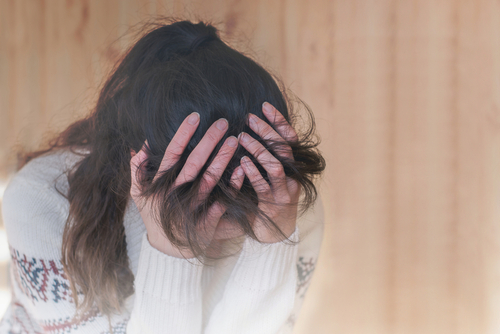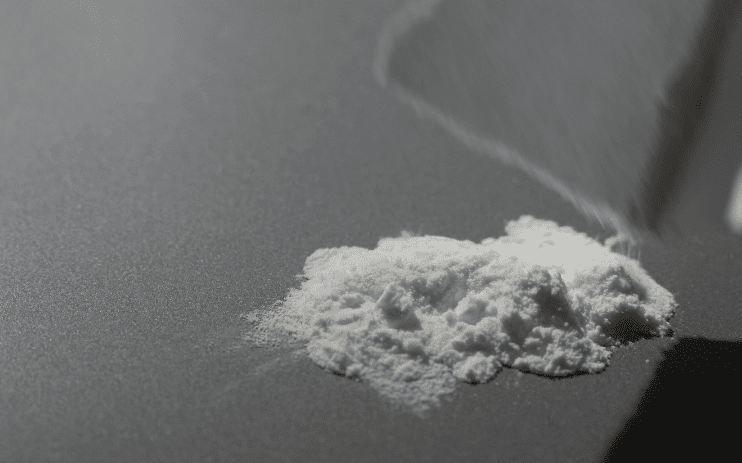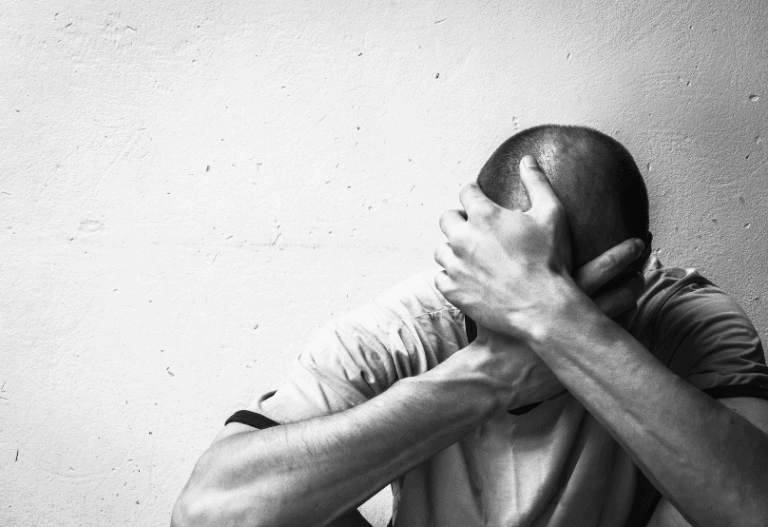What Causes OCD To Get Worse: Addiction or Something Else?
Substance abuse can exacerbate the obsessions and compulsions experienced by those with OCD, leading to a vicious cycle of OCD symptoms. In this article, we will explore the impact of addiction on individuals with OCD by understanding what OCD is, OCD symptoms, what causes OCD to get worse, the relationship between OCD and addiction, and how to treat co-occurring disorders.
What is OCD?
Obsessive-compulsive disorder (OCD) is a mental health condition that causes obsessive, intrusive thoughts and repetitive, compulsive behaviors that can interfere with relationships, work, and an individual’s daily life. OCD is categorized into two components: obsessions and compulsions.
- Obsessions: These are intrusive, unwanted, and distressing thoughts, urges, or images that repeatedly enter an individual’s mind. These thoughts are often irrational and can cause significant anxiety and discomfort. Common obsessions include fears of contamination, concerns about harm coming to oneself or others, worries about symmetry or order, and taboo thoughts of a sexual, religious, or aggressive nature.
- Compulsions: Compulsions are repetitive behaviors or mental actions that individuals with OCD feel compelled to perform in response to their obsessions. These actions often aim to reduce the anxiety caused by the obsessions, even though they are not connected realistically. Compulsions can be physical actions such as excessive hand washing, checking locks repeatedly, or arranging objects in a specific order. They can also be mental rituals like counting, silently repeating phrases, or mentally reviewing events to ensure nothing bad happened.
According to the International OCD Foundation, approximately 2 to 3 million adults currently have OCD in the United States. OCD can significantly impact an individual’s overall well-being and quality of life. This is why it’s essential to understand what causes OCD to get worse and how to prevent this from happening.

Symptoms of OCD
Before we can understand what can cause OCD to get worse, we need to understand the main symptoms of OCD and what they can typically look like. These symptoms are also categorized into the two components of obsessions and compulsion, but they can vary from individual to individual. It’s important to note that individuals with OCD often recognize that their obsessions and compulsions are irrational, but they feel compelled to engage in these behaviors to alleviate anxiety. Some of the most common OCD symptoms may include:
- Contamination: Excessive fears of germs, dirt, or contamination, leading to compulsive handwashing or avoidance of potentially “dirty” places or objects.
- Harm: Persistent worries about harming oneself or others, often accompanied by rituals to prevent harm, like checking locks or appliances repeatedly.
- Symmetry and Order: An intense need for things to be arranged or organized in a specific way, with distress when things are not “just right.”
- Forbidden Thoughts: Intrusive, distressing, or taboo thoughts of a sexual, religious, or aggressive nature that are contrary to an individual’s values or beliefs.
- Health Concerns: Preoccupation with bodily sensations or illnesses, often leading to excessive visits to doctors or hospitals.
- Superstitions: Engaging in rituals or behaviors to ward off bad luck or prevent perceived negative consequences.
- Checking: Repeatedly checking locks, appliances, or other objects to ensure they are secure.
- Cleaning/Washing: Excessive handwashing or cleaning rituals to remove perceived contamination.
- Counting: Counting objects, steps, or other things to alleviate anxiety.
- Ordering/Arranging: Arranging items in a specific manner to achieve a sense of order or symmetry.
- Mental Rituals: Engaging in mental compulsions like repeating words or phrases, praying, or mentally reviewing events.
- Avoidance: Avoiding situations, places, or people that trigger obsessions can lead to significant limitations in daily life.
- Hoarding: The compulsive collection and retention of items, even if they have no value, because of the perceived need to save them.
What Causes OCD to Get Worse?
Several factors can trigger episodes of OCD and contribute to the severity of the condition, often referred to as comorbidities. Comorbidities, also known as co-occurring disorders, which are other mental health issues that coexist with OCD, are a primary reason for worsening OCD symptoms. Individuals with OCD may also have other related mental health conditions, such as various anxiety disorders, impulse control issues, ADHD, mood disorders like major depressive disorder, social anxiety, tic disorders, substance abuse problems, and health-related anxieties. As these comorbidities and related conditions become more severe, untreated OCD worsens, especially if individuals engage in compulsive behaviors to alleviate their anxiety.
Since each individual’s experience with OCD is unique and the disorder manifests differently for each individual, it’s challenging to predict exactly when, how, or if OCD symptoms will get worse. Adding to this is that OCD can take on various unofficial subtypes, including contamination fears, perfectionism, fears of causing harm, or excessive counting. However, one thing that’s evident is that comorbidities, stress, anxiety, or significant life changes can all contribute significantly to the worsening of OCD.

The Relationship Between OCD and Addiction
The connection between OCD and addiction stems from shared risk factors like genetics, environmental influences, and neurobiological factors. These common vulnerabilities can increase the likelihood of someone experiencing both disorders simultaneously. Compulsive behaviors play a central role in both conditions, as individuals with OCD use compulsions to manage distressing obsessions, while those with addiction resort to substances as coping mechanisms. This overlap can lead to a dependent relationship, where OCD symptoms may drive substance use, but substance use can worsen OCD symptoms.
The treatment of co-occurring OCD and addiction presents challenges, as traditional programs may not properly address both disorders. Integrated treatment approaches that combine therapies for both conditions are often the most effective. Individuals with these co-occurring disorders often have other mental health issues, such as depression or anxiety, adding difficulties to their treatment plans. Despite these challenges, long-term recovery is possible through ongoing therapy, support groups, medication management, sobriety commitment, and healthier coping strategies.
How Does Substance Abuse Affect People with OCD?
Substance abuse can intensify anxiety in individuals with OCD, compounding the distress already caused by their obsessions and compulsions. It can also worsen OCD symptoms by impairing judgment, fostering compulsive behaviors, and creating a cycle where substance use exacerbates OCD, leading to increased substance abuse as a coping mechanism to provide temporary relief from their symptoms.
Substance abuse diminishes the effectiveness of OCD treatments, including therapy and medication, and raises overall health risks when combined with the stress associated with OCD. This substance abuse-induced isolation, financial and legal troubles, impaired decision-making, co-occurring mental health disorders, and addiction risk make managing both OCD and addiction a complex challenge that often demands specialized treatment approaches.
Getting Treatment for Co-Occurring Disorders
Getting treatment for co-occurring disorders, such as when someone has both OCD and substance use disorder, is a critical step toward achieving improved mental health and overall well-being. The treatment for these disorders may include:
- Dual Diagnosis: Co-occurring disorders often interact with and influence each other, making it essential to address both conditions simultaneously. Dual diagnosis treatment, which combines therapies for OCD and addiction, is highly effective. It may involve a combination of cognitive-behavioral therapy (CBT), exposure and response prevention (ERP) for OCD, and addiction-focused therapies like cognitive-behavioral therapy for substance use disorders. Medication-assisted treatment may also be part of the treatment plan.
- Behavioral Therapies: As mentioned above, cognitive-behavioral therapy may be utilized during treatment. These treatments focus on addressing the underlying causes of addiction and helping individuals develop coping skills to handle triggering situations. This may include various therapies such as art therapy, adventure therapy, or family therapy.
- Support Groups: Having a support network of individuals who have gone through similar circumstances can provide a sense of community and belonging to individuals with OCD and substance use disorders. Involving family members and loved ones in the treatment process can benefit the individual by having people around them who care. Family therapy or support groups can help educate and support individuals with co-occurring disorders and their loved ones.

Dual Diagnosis Treatment Available at Oasis Recovery Center
Suffering from OCD and addiction is a challenging and complex situation to conquer. By understanding what causes OCD to get worse and how addiction and drug abuse play a role, individuals can make informed decisions before taking harmful substances and receiving the proper treatment for their conditions.
At Oasis Recovery Center, we focus on treating addiction through the mind, body, and spirit to offer our clients a deeply transformative recovery process. We provide addiction treatment services with various therapies and healing modalities to give our clients holistic, experiential, and individualized treatment options. With our treatment programs, individuals receive effective treatment during the recovery process to live a life they love.
If you or a loved one are suffering from OCD or substance use disorders, contact us today to learn more about our treatment programs.








